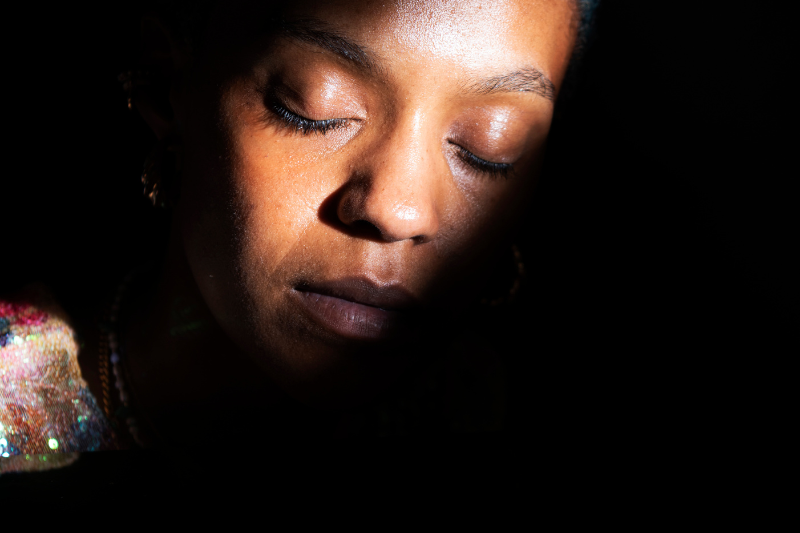Trauma can be a complex and challenging experience which may profoundly affect various aspects of our lives, including our sexual health. It can be the catalyst for both emotional and physical issues which can disrupt sexual desire, arousal and overall sexual function. For many, trauma can create difficulties in connecting with a partner and fully enjoying sexual intimacy. Let’s look into the relationship that exists between trauma and libido and ways to navigate trauma and its impact on our sexual health.
What is libido?
Libido means sexual desire. You might hear this word with descriptions around it like, “high/low libido” or “drop/rise in libido,” which describes generally how often you desire sexual connection. Fluctuations in libido throughout life are normal. Both external and internal circumstances can affect it. If you’re on a relaxing vacation with your partner, you might be more inclined to have sex more often because your new surroundings are free from the stress of day to day life at home. However, if you’re going through a particularly stressful season in life, such as welcoming a new baby into your home, your desire might not be what it once was due to all the change, unpredictability, and exhaustion.
Internal influences on libido fluctuation usually have to do with your emotional life and your mental health. There is a lot of overlap between external and internal circumstances as they both affect each other. For a more in depth explanation and the different kinds of libido we can experience, check out this past blog Libido. What about trauma though? If current circumstances are triggering a trauma response, your body might have something to say about whether it wants to have a sexual encounter or not. Let’s back up a little bit and define trauma.

What is trauma and why does the body hold onto it?
The word comes from the Greek term for “wound.” They are painful, they take time to heal, they often leave scars, and if you don’t tend to them, they can escalate. Both physical and psychological trauma exist. Psychological trauma can have the detrimental effect of disconnecting you from yourself. The body holds onto it because it wants to protect you from future trauma. It remembers everything, even the things you think you’ve forgotten.
Trauma and Libido
Everybody has trauma, that’s normal! It’s not always there causing challenges. We all have what we call “triggers” that can toss our bodies into a trauma response. Let’s use “make-up sex” as an example. This is a common cycle that happens in relationships where a disconnect happens, a discussion or argument ensues, and once it’s over the couple has the urge to reconnect through sex. It can be healing and connecting for many couples and is common enough that we have a name for it! But for many it’s not so simple. Imagine that as a child you had a father who yelled at you and made you feel unsafe. As an adult, if your male partner yells at you during a disagreement, this may trigger your trauma and the trauma response may make you feel unsafe. It’s like poking a wound that hasn’t healed. When you and your partner make up and the fight is over, reconnecting with each other through sex might not be on the table yet because it may take a while for your body to calm down and return to that safe feeling.
For you to be able to work with and through your trauma, it is helpful to know what your triggers are so that you can think wisely about what’s happening in your body. Acknowledging the feelings and caring for yourself so that your body can return to a calmer (parasympathetic nervous system) state is the first step. After that, you can remind yourself that you are safe, that this situation is not dangerous, just emotionally uncomfortable or challenging. And from there you can work with your partner on connecting in a way that feels safe.

Sexual Trauma
If you have been sexually abused or assaulted at any point in your life, trauma is something that might be intricately enmeshed with sex for you. There are many ways you can work through this, both with your partner and independently with a therapist. Author Staci Haines wrote a wonderful book specifically about this subject called Healing Sex, providing a compassionate and empowering guide to reclaiming one’s sexuality after trauma.
What are some ways that sexual trauma can show up?
- Low libido or sometimes an aversion to sex
- High libido – using sex as a coping mechanism
- Fight, flight, or freeze response when faced with a trigger
- Checking out
- Pain during sex
- Depression/anxiety
- Low self-esteem, shame, or guilt
- Difficulty having orgasms
Here are some simple ways that partners can be mindful and helpful when trauma shows up:
- Recognizing when the person checks out. Often when we get triggered, we can zone out, as if we’re not fully inhabiting our bodies. Make sure your partner knows to look out for this, and if it happens, stop having sex and focus on safer-feeling ways of connection.
- Setting boundaries – know what you will and won’t do and make it clear.
- It is ok to change your mind at any time. Agreeing to have sex does not mean that you have to keep going if it becomes challenging or distressing for any reason.
- Setting expectations, know what you’re willing and open to, and try to stick to it
- Developing sexual experiences that work for you. Sex can look however it needs to in order to feel good to both parties
It’s healthy and helpful to recognize that challenges crop up in relationships and sex throughout our lives. These are skills that can be generalized to many sexual contexts ( whether there is identifiable trauma or not).
More Info
For further information or support on how we can address, work through, and heal trauma for a more fulfilling life, here’s a list of helpful resources:
- Gabor Maté’s documentary “The Wisdom of Trauma” is a film that aims to raise awareness about the impact of trauma on individuals and society as a whole. It inspires a greater understanding and compassionate response to trauma.
- Somatic experiencing (SE) is used with clients with a history of trauma (sexual or otherwise) by working with body movement and the nervous system.
- My past blogs on Sexual Shame (Part One and Part Two) touch on how we move through shame and why trauma can turn into shame. Part one is about harmful systems, and part two about harmful people.
If you or your partner are dealing with trauma, you’re not alone. Sex coaches and therapists are here to help. Feel free to reach out to me if you would like to step into this healing journey.

